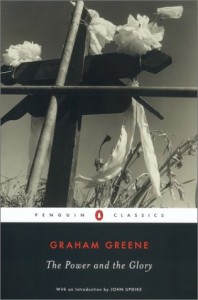James Salter’s sad 1967 novel, A Sport and a Pastime, has only grown in stature since its publication, but the book apparently didn’t make the author financially independent. Salter, who will turn 90 in June, picked up some paychecks writing articles for People in the 1970s, including a profile of a septuagenarian Graham Greene, who was then living a rather anonymous life in Paris. Judging from this piece, Philip Roth and China were among Greene’s dislikes. An excerpt:
Greene still reads a lot, three or four books a week, and notes them in his diary, putting down a little tick or cross in judgment. Among the Americans, he likes Kurt Vonnegut. Gore Vidal: “I like his essays.” Alison Lurie. Philip Roth, not much. Bellow, he finds rather difficult. As for his own work, even coming from a long-lived family it is not easy, he admits, to think of starting on a book these days. “The fears,” he says simply, “not knowing whether one will live to see the end of it.”
He has been a published writer since 1929 with his first novel, The Man Within. There have been novels, travel books, thrillers, films, plays, short stories and autobiography as well as essays and reviews. His output has been protean and the breadth of his travel and experience, vast. Many of his settings are foreign. The Honorary Consul, for instance, resulted from a three months’ trip to South America. Though his command of Spanish covers only the present tense, he was visiting in Argentina and saw the town of Corrientes one day while going up the river to Asunción. Corrientes became the scene of the book. He has been in Africa, Mexico, Russia and China (“I found it depressing”), served as an intelligence officer in Sierra Leone during the war, smoked opium in Indochina where he went as a correspondent regularly beginning in 1951 and flew in French bombers between Saigon and Hanoi. He has been an editor in a publishing house, a film reviewer, a critic, a life as varied and glamorous as that of André Malraux, another great literary and political figure. Like Malraux, he asks to be read as a political writer and has set his fiction firmly in that world. The lesson in the books of Graham Greene is the great lesson of the times: one must take sides.•


